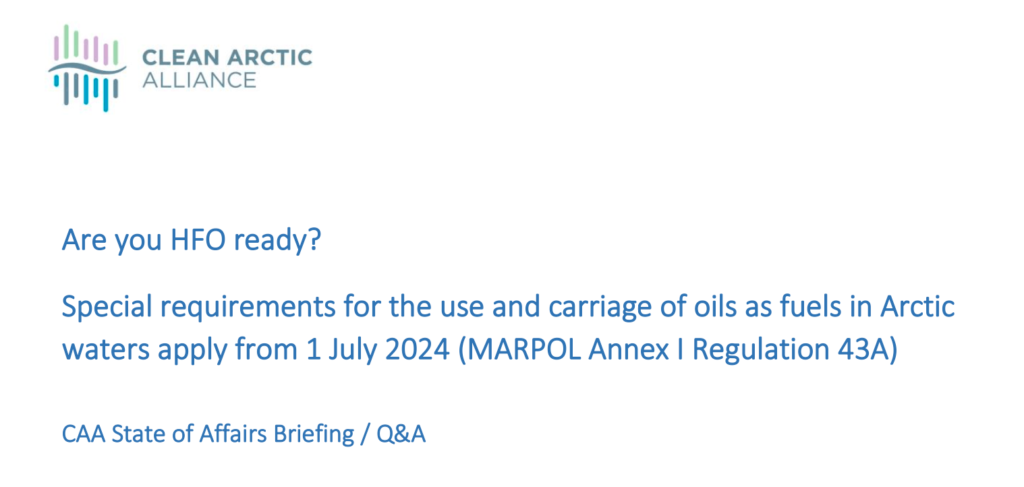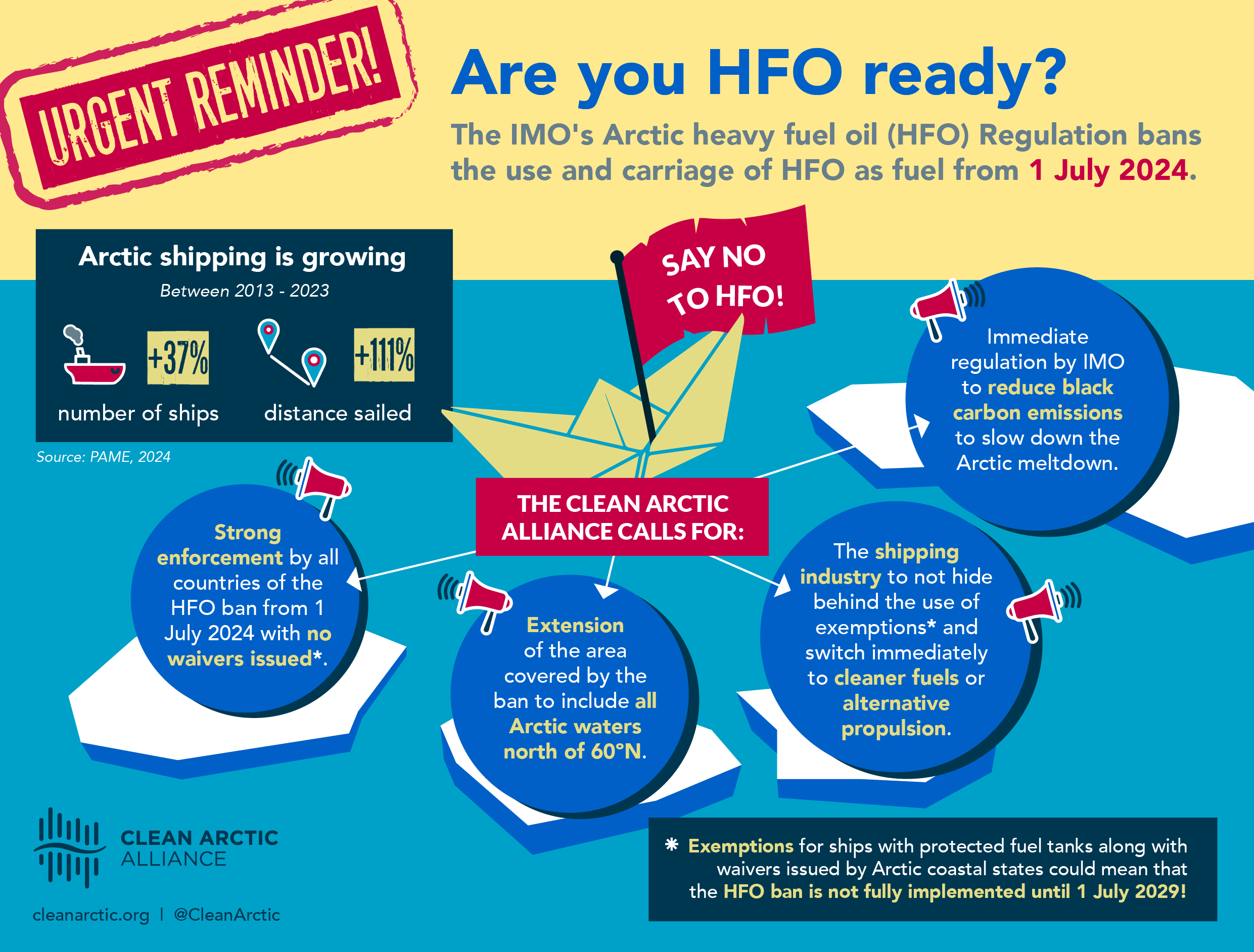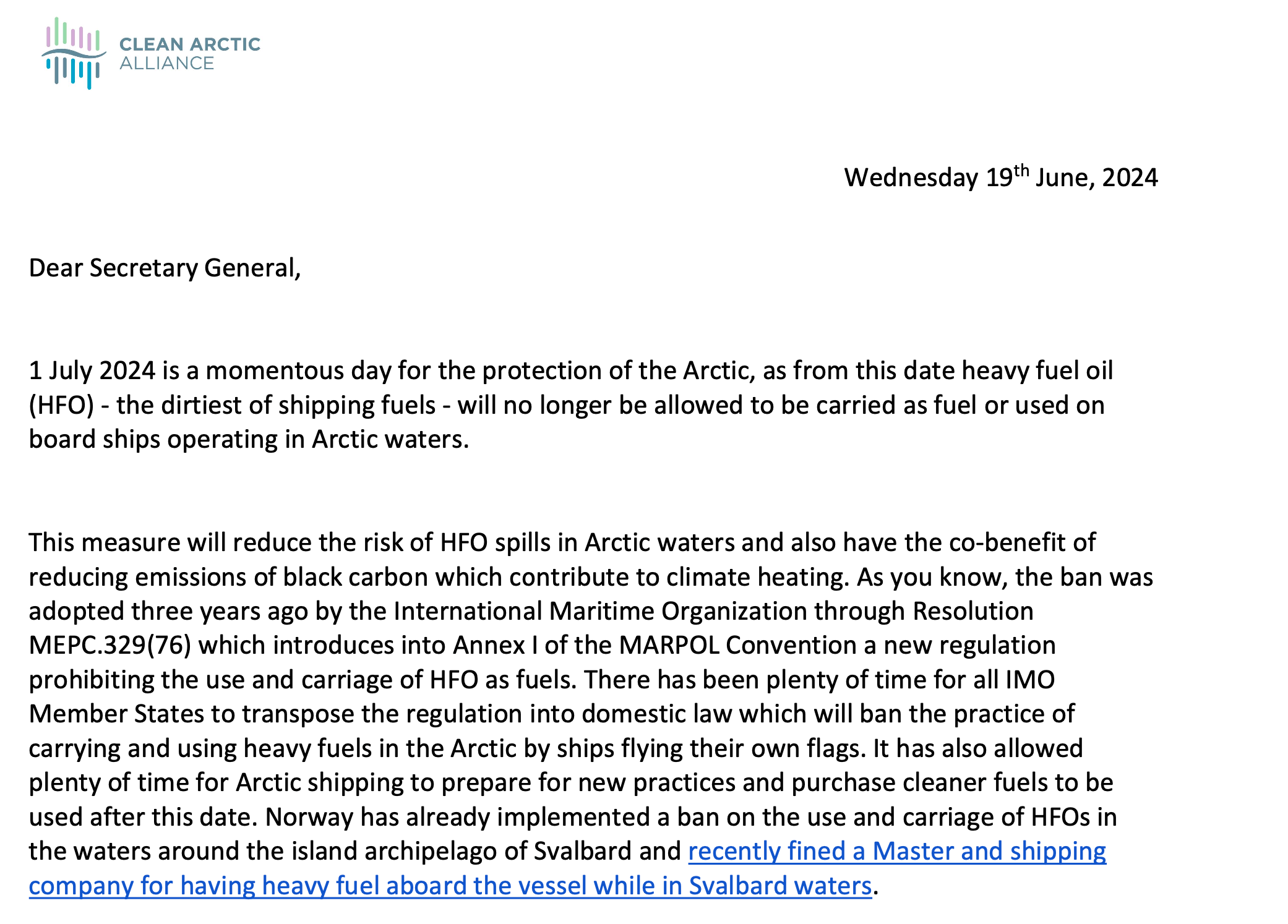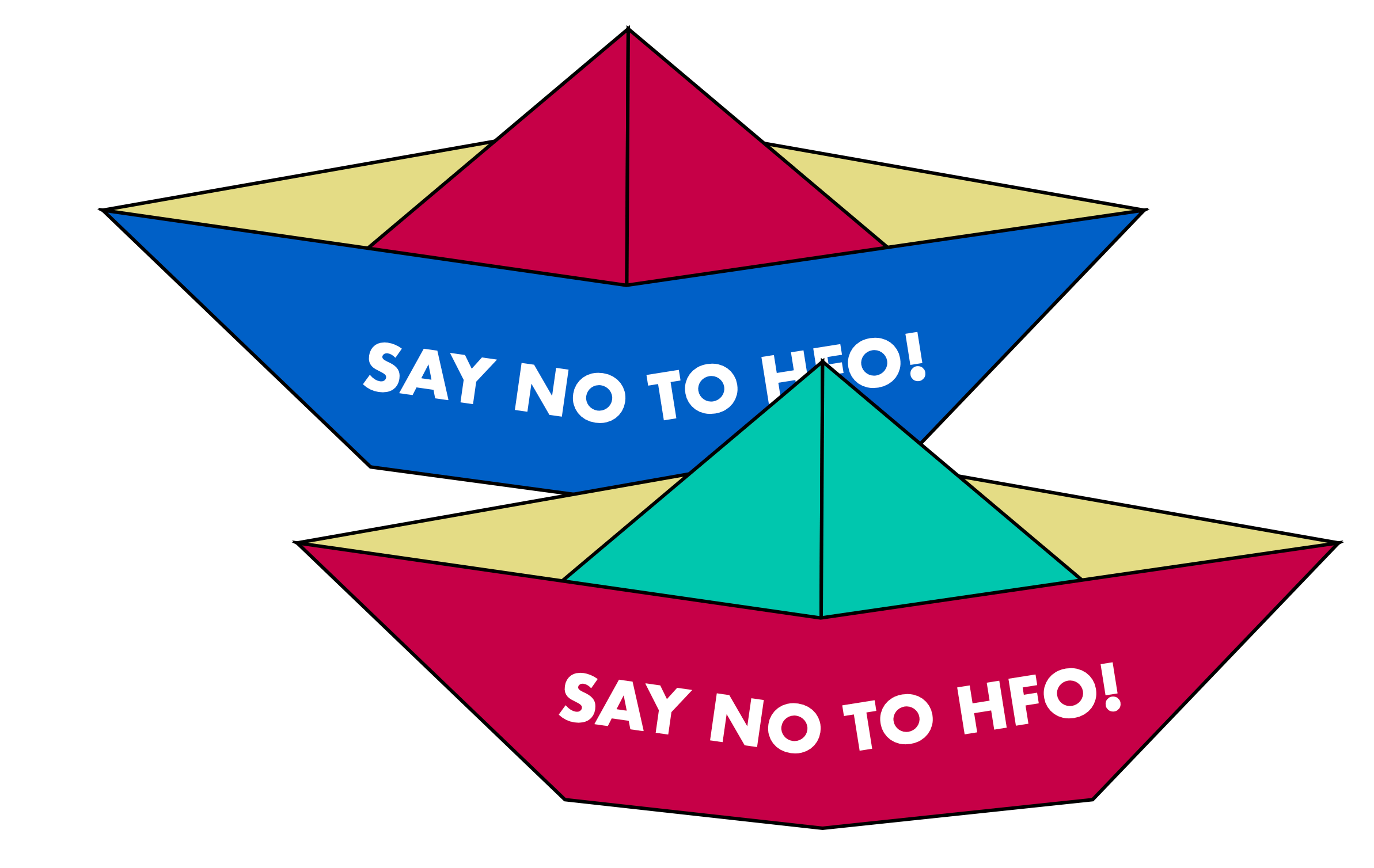
In June of 2021, after nearly six years of negotiations, the International Maritime Organization adopted Regulation 43A of MARPOL Annex I (Resolution MEPC.329(76)), which sets out special requirements for the use and carriage of heavy fuel oils in Arctic waters. The Regulation became international law from November 2022, however the initial deadline for prohibiting the use and carriage of HFO as fuel falls on 1 July 2024. Despite a stated purpose of reducing the risk of an accidental oil spill into Arctic waters, Regulation 43A includes a significant exemption for ships that comply with specific fuel tank design requirements (protected fuel tanks) and an allowance for Arctic coastal nations to issue waivers extending until July 2029 for shipping flying the flag of that nation while operating in waters subject to the sovereignty or jurisdiction of that nation. Both the fuel tank exemption and the waiver provisions were adopted despite evidence that (1) the regulation as drafted would provide little protection for Arctic waters for most of this decade; and (2) this timescale for implementation was inconsistent with international approaches to the protection of the marine environment.
Clean Arctic Alliance Recommendations:
In submissions to the IMO during the finalisation of the regulation, the Clean Arctic Alliance has previously proposed that the need for exemptions to the provisions of clause 43A(1) be reviewed, and clauses 43A(4) and (5) allowing waivers to the special requirements for the use and carriage of oils as fuels in Arctic waters be removed. This was not accepted by IMO Member States when the regulation was approved and adopted. Now, CAA is recommending:
- Strong enforcement of the HFO ban by all States from 1 July 2024 with Arctic coastal states not granting waivers;
- HFO ban should be extended to include all Arctic waters north of 60oN; [N.B. this could be done by IMO or by Iceland / Norway individually although Norway could argue that it is effectively doing this through the forthcoming Norwegian Sea ECA]
- Immediate regulation by the IMO to reduce ship black carbon emissions to reverse the Arctic meltdown. This could happen though an immediate switch to distillate fuels and the use of diesel particulate filters; and
- Strong compliance by all ship operators – the shipping industry should not hide behind the use of exemptions and should instead switch to readily available ‘cleaner’ fuels (diesel / distillate (DMA / DMZ)), or to alternative forms of propulsion and install diesel particulate filters. Ships should not switch to LNG.




